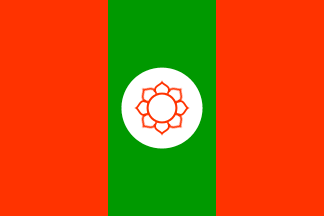 |
 |
 |
|
CK Raut has made the best out of this political fallout
NAVIN JHA FEB24, After the CA Chair Subhas Nembang, apparently under pressure from the ruling coalition, initiated a vote on the new constitution, the opposition alliance has been on the warpath. The Maoist-Madhesi parties have not withdrawn their protest programs even after Nembang halted the voting process. The UCPN (M) Chair Pushpa Kamal Dahal has declared Kathmandu, Madhes and ethnic strongholds of the hills as three fronts of their future protests. But, the Maoist and Madhesi leaders know they need to spearhead a strong agitation in the Madhes if they want to put pressure on the ruling coalition. Reduced to a third party after the second CA elections, the Maoists are trying to regain some strength through street protests. On the other hand, the Madhesi parties also want to restore their foothold in the Madhesi through a political movement. In remote villages of the southern plains, the locals, however, seem reluctant for a stir anytime soon. “It is not easy to make people hit the streets,” says Kaushalendra Srivastav, a local in Nawalparasi district. Srivastav feels people are annoyed with divisions among political parties. The Maoist-Madhesi parties are not the only political players in the Madhes. CK Raut, who was arrested on the charge of treason and later freed, has increased his political activities. Matrika Yadav, who formed his own party when CPN (M) became UCPN (M), is also active in the Madhes. After serving a one-year jail term on the charge of corruption, JP Gupta is spearheading his Tarai-Madhes National Campaign. There has also been a surge in activities of armed groups. The political landscape of the Madhes is rapidly changing. But, the parties that claim to be champions of the cause of the Madhesi people seem oblivious. The people of Madhes are frustrated with the prolonged political deadlock and politically-incorrect statements by the ruling party leaders, particularly UML Chief KP Oli, has further antagonised the locals. Separatists like CK Raut have made the best out of this political fallout. The ruling NC-UML and the opposition Maoist-Madhesi apparently have differences over status of five districts of Madhes (Jhapa, Morang, Sunsari in the east and Kailali and Kanchanpur in the west) in the new federal set up. While the ruling parties want these districts to be clubbed with hill provinces, the opposition parties want all the districts predominated by the Madhesi to remain as part of the southern provinces. Chakradhar Pandey, a local MJF-Nepal leader in Kapilvastu, who played a key role in the Madhes movement, says if there is another movement in the Madhes, it will be directed not only against the ruling coalition but also the Madhesi parties. He says the Madhesi parties have failed to fight for the Madhesi people’s aspirations for autonomy and self-rule. In the past, the parties paid a price for ignoring anger simmering in the Madhes. Girija Prasad Koirala failed to read the writing on the wall, which led to the Madhes movement in 2007. Similarly, Maoist aggression against Madhesi activists during the same period made them unpopular during the first CA elections. And, the electoral defeat of the Madhes-based parties in the second CA elections is a reminder that those who fail to live up to expectations of the people are punished accordingly. It is not the first time the Madhesi people are demanding autonomy. In fact, it was first raised in the 1950s by Nepal Terai Congress, whose leaders fought alongside Nepali Congress (NC) veterans against the Rana oligarchy. In the 1980s, Gajendra Narayan Singh-led Sadbhawana Party had demanded autonomy of Madhes from hill administration but was snubbed by Kathmandu for being a ‘seperatist’ and ‘pro-Indian’. Srivastav, who was a long time aide to Singh, believes attitude of the hill people towards the Madhesi people is at the root of the demand for a self rule in the Madhes. ‘People of Madhes want to be citizens of this country on their own terms, and if Kathmandu does not respect their desire, they will never be emotionally integrated in the national mainstream,’ says he. Common people in the Madhes still believe that the parties will eventually find a peaceful solution to their problems. That is why they have deliberately refrained from reacting to opposition’s posturing against the ruling coalition. But, if the leaders in Kathmandu over-read their electoral mandate to disregard the agendas raised by the 2007 movement, there is now doubt the Madhesi people will rise again for a movement. And, no now knows how far people will go this time around. |
